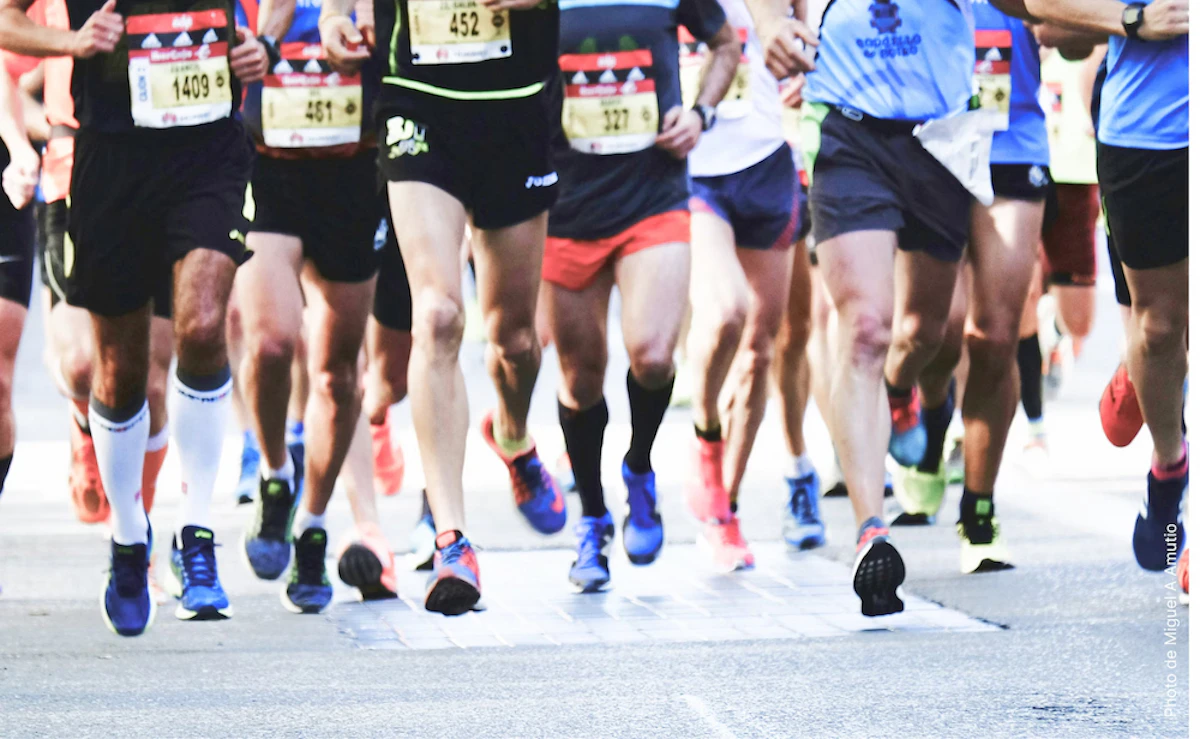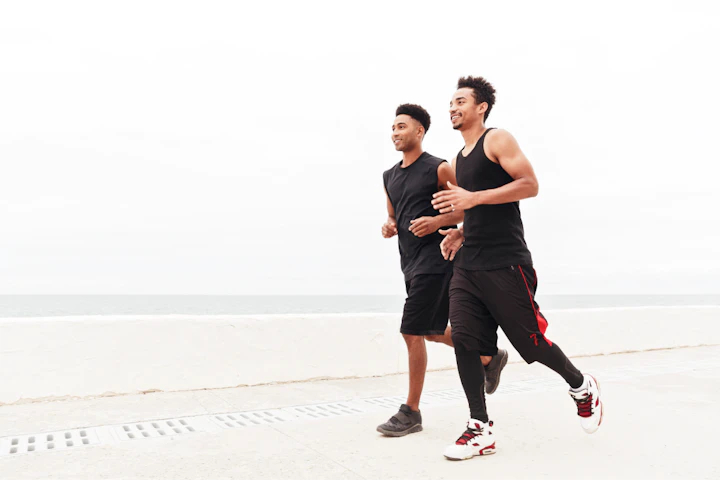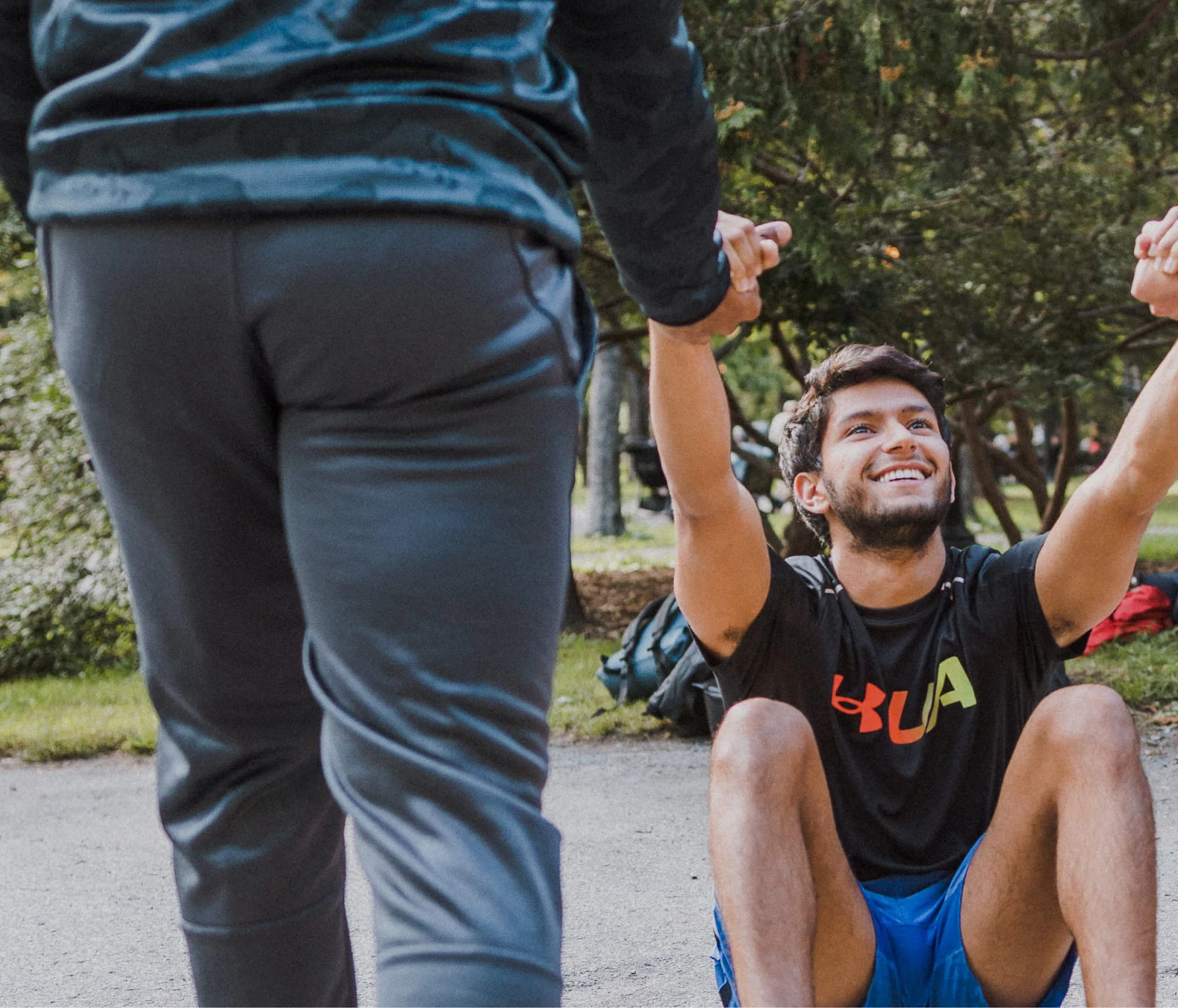
8 min read
Summary
What is the optimal workout one week before a marathon?
D-7: the marathon taper phase
When to do your last long run before a marathon?
When should you stop running before a marathon?
3 tips for the last week before the marathon
Diet and meals for the last week before the marathon
Between D-6 and D-1: What to eat before a marathon?
Breakfast before your marathon: D-day
The day before and the D-day: relax!
H-1: arrival on the course and light warm-up

Receive advice from our passionate coaches!
A week before the marathon, the starting line draws near rapidly! You're probably wondering how to adjust your final workouts: when to stop running? What should your diet be? How to best prepare yourself? So, to approach the marathon with complete confidence, discover our recommendations for this final week of preparation

What is the optimal workout one week before a marathon?
What are the most optimal workouts to follow just before the marathon's start line? Even after following a training plan, you may have concerns about the last weeks of training, and especially about the last week before the race. Here we give you explanations and advice on this matter.
D-7: the marathon taper phase
As a reminder, 2 or 3 weeks before your marathon, you entered the tapering phase of your training plan. After gradually increasing your weekly mileage and working on your marathon pace in the previous phase. With tapering, you reduce this load to best prepare your body for race day. The goal of the last week is to continue maintaining the fitness level achieved while recharging energy stores.
When to do your last long run before a marathon?
The long run is reassuring and closely matches race conditions in terms of duration. But be careful, doubling down in the last weeks may actually be counterproductive.
Therefore, it's recommended to do your last long run about 3 weeks before the marathon, and it should not exceed 2 hours 30 minutes. Afterwards, the duration should decrease until the last long run, ideally not exceeding 1 hour 30 minutes at D-8/D-9. The previous weeks of training were sufficient for your preparation, and there's no point in doing more. This will allow your body time to rest and arrive in top condition for the big event!

When should you stop running before a marathon?
The last days before your race are part of this tapering phase, which starts about 3 weeks before race day. As previously mentioned, the aim is to reduce your training load before your race to arrive in the best possible condition. It's not about being completely at rest; you need to keep your body moving.
So, you can continue light runs the week before the marathon. Just make sure to reduce your training volume by 33 to 50% compared to your average volume for the rest of your prep.
This week, you might even do a final workout with a bit of very easy intensity between D-6 and D-3. Finally, you can do your last easy workout the day before the race: the famous shakeout run. Some are even organized with Campus Running Groups. You'll be reassured before running your marathon, and it will prevent burning legs!
3 tips for the last week before the marathon
The last week before a marathon is the final point of your preparation, so there's typically nothing revolutionary to do. Ideally, you have already maintained a healthy lifestyle during your preparation. And you only need to adjust certain details, like your diet, for example. The important thing is to arrive rested and calm at the race: here are our suggestions for optimally approaching your marathon.
Diet and meals for the last week before the marathon
Between D-6 and D-1: What to eat before a marathon?
The goal is not to change all your eating habits to avoid disturbing your body. The food you've consumed has accompanied you throughout your preparation, and you've managed to perform well in workouts? So, there's no need for a revolution at this stage.
'The small improvements you can still implement are first increasing your carbohydrate intake in the 3 days before the race (by at least 20-30%). Then, consider limiting fats and fibers in your diet, and remember to drink enough and eat adequately salty foods.

Breakfast before your marathon: D-day
Before running your marathon, there's no room for improvisation! Don't try anything new and stick to what you know. For your breakfast, avoid eating too much, but don't start the race on an empty stomach either. It's best to have your "last big meal" a few hours before the start (around 3 hours) to have time to digest. Then continue to eat small carbohydrate portions (either solid or liquid, with energy drinks for example) until the race starts to leave with full energy reserves. The aim is to start satiated without feeling too heavy to run.
And ideally, you had already tested the fueling during a long run. You know when to take them throughout your race.
The day before and the D-day: relax!
The night before the race, try to reduce your stress as much as possible. Plan when to pick up your bib (Friday or Saturday) and prepare your race outfit. Remember to hydrate, eat properly, rest well, and everything will go well!
On race day, don't forget to bring water for the race and your fuelings. You can also apply anti-chafe cream, provided you've already tested it during your long runs. Then, head to the marathon starting point!
H-1: arrival on the course and light warm-up
It's time to head to the race start; to be as relaxed as possible, we can only advise you to allow plenty of time. This way, you'll be able to store your things in the lockers if needed, warm-up, and head towards your starting zone calmly.
Regarding the warm-up, it depends on your goal. If it's your first marathon, focus on dynamic stretching without a warm-up run or accelerations before the start. The first kilometers of the race will serve as your warm-up. This will allow you to conserve all your energy for the 42,195km ahead!
If you already have marathon experience and aim for a time goal, you can warm up by doing a light run, drills, and dynamic stretches. In any case, don't try anything new at this point, as it could be counterproductive. Then, head to the starting corral with peace of mind!
Ready for the Marathon: Last-Minute Tips?
For this big day, have you checked the weather forecast? Knowing what to expect will help you adjust your gear and strategy. If you've been consistent and truly train for a marathon, you know hydration is key. It's highly recommended to avoid alcohol in the days leading up to the race to optimize your performance and recovery.
Don't forget that the strength training sessions you did during your preparation have built your resilience. Every marathon runner understands that strength is just as crucial as endurance. If you've followed a solid plan to train for a marathon, you're ready. Trust your training and your abilities.
There you are on the starting line, ready to set off and conquer the queen distance. Keep in mind that it's an extraordinary sporting experience, so enjoy every moment. Ready? Go!!

Manon
share

Receive advice from our passionate coaches!

Download the marathon guide
In the same category
Share this post





